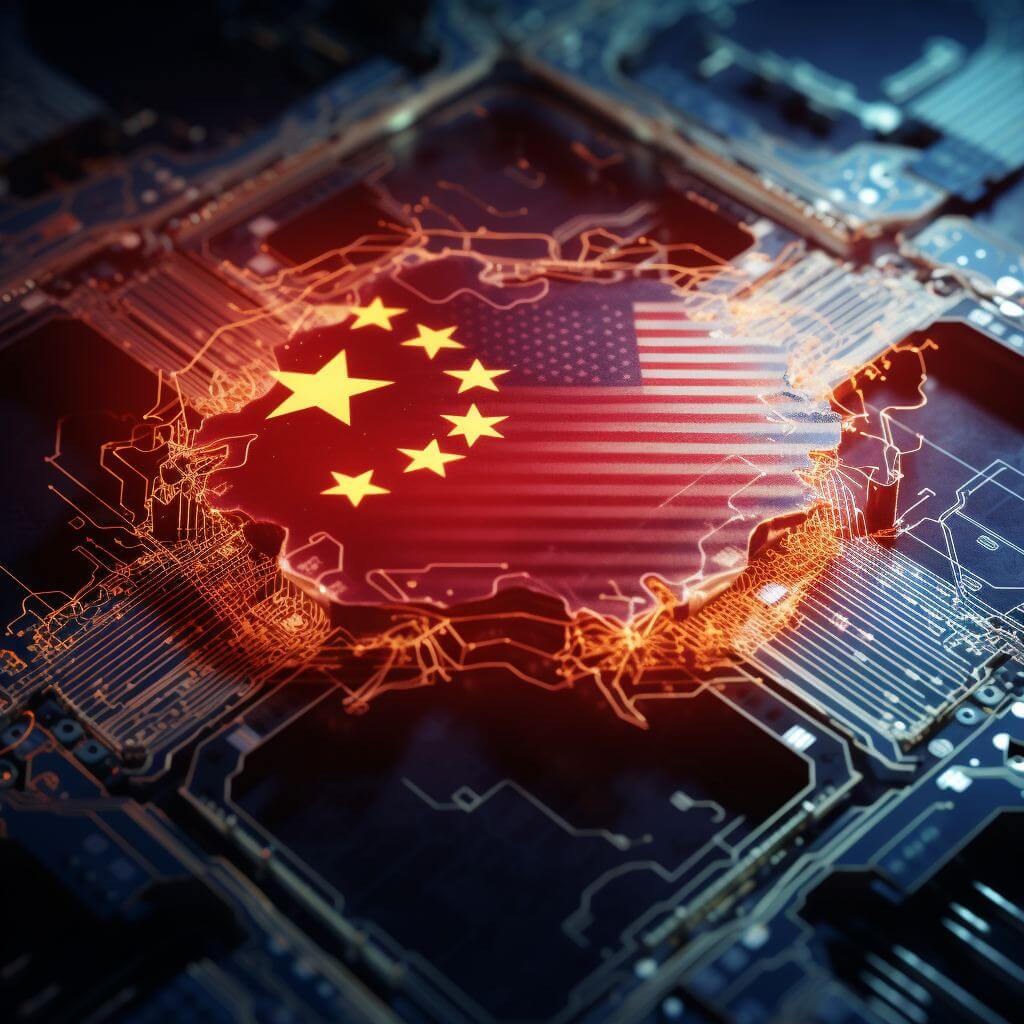In the aftermath of the Asia-Pacific Economic Cooperation conference, where President Biden and President Xi engaged in talks, hopes for a substantive resolution on various issues between the United States and China seemed promising. Yet, beneath the surface of diplomatic pleasantries, a pressing concern looms—the intensifying “tech cold war.”
The impact of this geopolitical struggle extends beyond diplomatic relations, significantly affecting the tech industry, with a particular focus on cutting-edge artificial intelligence (AI). Despite the positive gestures, the unresolved issues surrounding AI and technology access cast a shadow on the seemingly improved relations.
Tech giants navigate tensions
Amidst the optimistic sentiments from tech leaders, including major players like Google and Nvidia, the core issue of AI dominance and technology access remains a contentious point. The U.S. has imposed restrictions on the export of advanced computer chips to China, citing national security concerns. President Biden and President Xi did engage in discussions about AI during their meeting, with a commitment to address the risks and enhance AI safety. Yet, the underlying message was clear—the United States and China are, for now, on a trajectory toward a technology cold war.
Tech CEOs, taking center stage at the APEC CEO Summit, emphasized the pivotal role of AI in shaping the future and the world economy. Google CEO Sundar Pichai highlighted the need for collaboration between the U.S. and China in establishing ground rules for the safe development of AI. Despite the positive outlook, the export controls on critical components, such as graphic processing units (GPUs) by Nvidia, have raised concerns.
The second round of U.S. export controls specifically targeted Nvidia, blocking the export of essential AI chips to Chinese firms. Jon Bateman, a tech and international affairs analyst at the Carnegie Endowment for International Peace, sheds light on this complexity, revealing that the U.S. computer chip industry heavily relies on revenue from Chinese buyers.
Notably, giants like Apple rake in tens of billions of dollars from phone and service sales in China. Even tech behemoths like Facebook and Google, blocked on the Chinese internet, manage to generate income through advertising to international consumers in the country. The interwoven nature extends further, with thousands of highly skilled Chinese nationals contributing to the American tech industry.
Despite the interconnectedness, a sense of disempowerment and voicelessness pervades U.S. tech companies as they grapple with the trajectory of strained relations. Behind the scenes, chip manufacturers engage in lobbying efforts against export controls, reflecting the industry’s silent yet determined resistance to the challenges posed by geopolitical tensions.
Clashing views – The tech dilemma in US-China relations
While tech leaders express the importance of collaboration, there is an underlying tension between the U.S. and China. Commerce Secretary Gina Raimondo attributes the export controls to national security concerns, especially in the realm of China’s military advancements. The U.S. chip industry, including companies like Nvidia, is entangled in the complex web of global trade, with a significant portion of revenue coming from Chinese buyers. Despite the interconnectedness, tech companies find themselves in a precarious position, reluctant to voice their concerns publicly due to the prevailing political climate.
As the Biden-Xi summit unfolded, President Biden set the stage by emphasizing the need for candid exchange and joint efforts on global challenges, including AI. Ian Bremmer of Eurasia Group pointed out that the U.S. and China appear to be heading toward a technology cold war, a sentiment echoed by tech industry analysts.
Post US-China meet-up – Tech diplomacy at a crossroads
In the wake of the US-China meet-up, the unresolved tensions surrounding AI and technology access raise crucial questions about the future trajectory of these global superpowers. Will collaborative efforts be sufficient to navigate the challenges posed by the technology cold war, or are we witnessing the beginning of a more profound and enduring divide? As tech leaders grapple with the delicate balance of diplomatic relations and economic interests, the impact on the future of AI and global technology cooperation remains uncertain. The world watches with anticipation, wondering whether the recent diplomatic engagements will pave the way for a collaborative future or mark the beginning of a protracted technology cold war.




